Profile
Meet Korkor & Jerry: The developers working to solve teacher absenteeism

Software and application development is one of the fast growing areas in the technology industry and more young people continue to bring out the creativity in them in this regard.
Last weekend, about 30 trainees who had acquired skills in software development converged in Accra to showcase mobile and web applications they had designed to tackle specific issues across different sectors.
Some of the applications demonstrated included: ‘Alodie’ an application that allows people to send money into mobile money accounts without using USSD codes; ‘FundFair’ which connects low income earners to donors to allow them pay off medical debt; ‘Sparky’— a platform that connects start-ups to investors; ‘Go Legal’ — designed to connect clients to lawyers, and many other applications which are not yet available to the public.
Another which could be of immense benefit to stakeholders in the education sector, is a mobile application intended to solve teacher absenteeism. The developers, Korkor Mensah and Jerry Gasu, spoke about their inspiration for the project and the prospect of the innovation they were looking forward to implementing fully.
Application
The partners in an interview with The Spectator said they took up the initiative because “the absence of teachers tends to negatively impact teaching and learning in schools.”
“Teacher absenteeism affects the confidence of parents and leads to low turnout of students so we decided to build an application that does a real time tracking of the teacher’s presence or absence,” the duo noted.
The application, according to the developers, “allows a teaching staff to scan a Quick Response (QR) code with his or her mobile phone and logs in with identification (ID) which has already been generated for him or her.
“After the teacher successfully logs in, he is automatically seen on a dashboard that is monitored by the administration of the school. The application then records the number of teachers who reported on time, those who reported late as well as those who did not show up at all,” they explained.
Collaboration
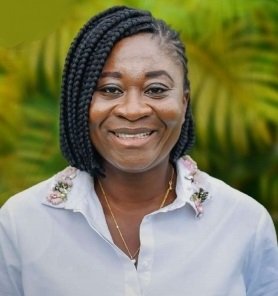
Ms Mensah is a Quality Assurance Test Analyst at Ecobank. In her role, she ensures that mobile and web applications and systems “are tested to ensure they are fit for purpose or do not have any defects.”
She had enrolled her two children at Codetrain, a Ghanaian tech company that trains individuals to become software developers, but was compelled to eventually take up the course and acquire the skills herself.
Jerry, on the other hand, started teaching himself how to code at home but realised there was more to learn beyond the self-taught approach he had adopted and, therefore, signed up to the structured courses that were being offered by the institution.
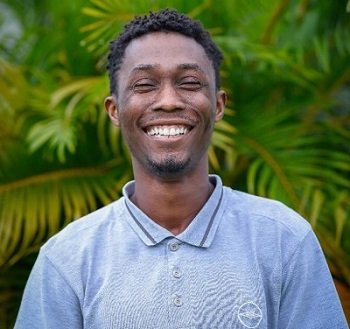
It was during the one-year intensive training at Codetrain that they both decided to work together on the teacher absenteeism application which they hope to fine-tune and make available to schools across the country.
“This is a demo and we have not rolled it out on full scale. We are open to other ideas and collaboration because this [application] solves a social problem. Our hope is to be able to roll out to schools in Ghana and possibly across Africa.
“If teachers are absenting themselves from classes then we will never get the quality education we want to give our children so this application is going to solve a challenge in the education system and we hope to partner other organisations to make this a reality,” Ms Mensah said.
Beyond Codetrain, Jerry intends to start his own business and continue to solve “real world problems” with his expertise.
Insight
The partners admitted that there were other applications that dealt with absenteeism but this did not stop them from coming up with their own innovation or solution.
“We know other well-established organisations have applications they use internally to track attendance of staff but in our research we do not think teachers are scanning QR codes to log in their attendance; they still make use of a notebook or a register.
“There are other applications solving the same problem but there is never a single solution to a problem. We decided to focus on the educational sector because we know ours will be unique,” Ms Mensah stated.
She was one of the few females among the graduating cohort. She said her aim of becoming a Quality Assurance Engineer in future would require programming skills hence the decision to join the course at Codetrain which she described as insightful.
“I work closely with application developers; the developers make the application, then my role is to test it. So I believe the skills I have now would help me to become a good Test Analyst.
“A year ago, I did not know how to code, I could not write a single line of code. My 10-year-old son brought a coding assignment home and I could not help him. I was really embarrassed and felt I had let my son down so weeks later I enrolled at Codetrain and a year down the line, the journey has been rewarding,” Ms Mensah recounted.
The developers encouraged individuals to sharpen their technology skills and explore the opportunities as well as solutions they could provide within the sector.
Ms Mensah advised young women to aspire to fill the existing gap in the technology industry while Jerry also urged aspiring software developers to be patient and remain focused because their efforts would eventually yield results.
Profile
Salamatu Ahmed, Ghana’s only female Hausa sports broadcaster
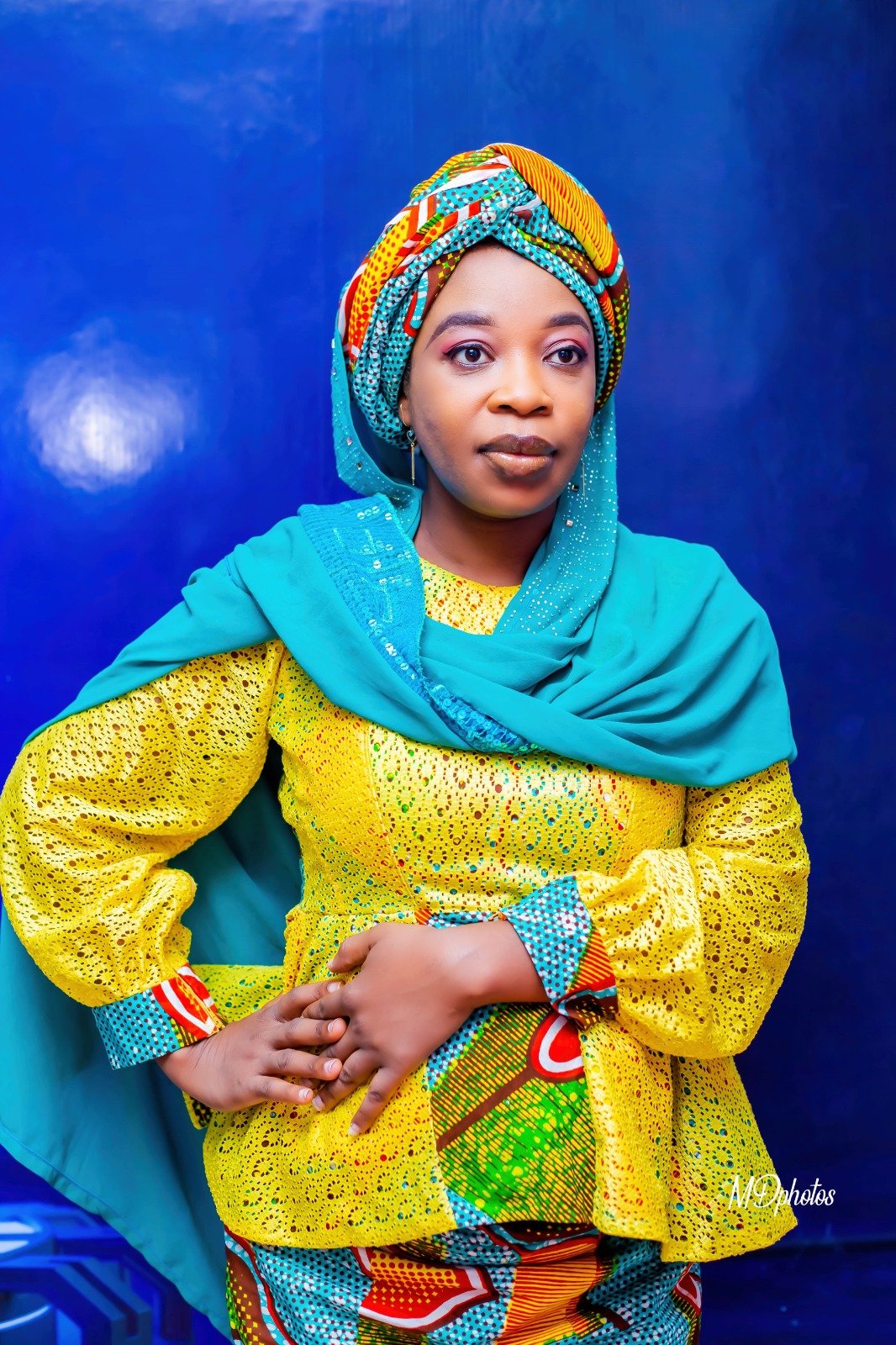
In a field long dominated by men, she has turned her microphone into a tool for change, amplifying women’s voices, promoting gender equality, and challenging deep-rooted stereotypes in sports journalism.
In Ghana’s media landscape, especially in the arena of sports, Salamatu Ahmed stands out. Not just as the host of Iqra Radio’s popular morning show, but as the country’s only female Hausa sports broadcaster.
From humble beginnings in Lagos to an influential voice behind the microphone in Accra, her journey is one of boldness, resilience, and purpose.
“I grew up in a close-knit neighbourhood in Lagos where everyone looked out for each other,” she recalled in an interview with The Spectator on Monday. “There was no discrimination. I could enter any house, share a meal or even sleep over without raising eyebrows. That spirit of unity shaped my values.”
She said, her love for broadcasting was sparked by her father, who was an athlete and devoted news watcher. Her father loved sports and news and recounted how she used to sit with him, watching the newscasters and wondering how they memorised so much.
“I later found out they used a teleprompter-what a relief!” she said with a laughter.
Salamatu’s passion for football heightened during the France ‘98 World Cup. “I watched almost all the matches. That tournament made me fall completely in love with the game,” she said.
But it was not until years later that broadcasting became a real career path-and quite unexpectedly.
She recounted how a friend of hers was managing Hijra TV asked her if she knew anyone who could do Hausa sports for the TV station.
She grabbed the opportunity as she was not working at the time, saying “so I offered myself,” she explained. “That was how it all started.” From Hijra TV, she moved on to Baina TV and eventually found her home at Iqra Radio.
Though her original dream was to become an English-language sports anchor, Hausa unexpectedly became her breakthrough. “People always ask how I manage to do it in Hausa, and the fascinating part is I am a woman doing it. That’s what truly sets it apart.”
But the journey has not been without hurdles. As a woman in sports media, she has had to fight for access and respect.
“It is always difficult getting interviews. Some male counterparts do not like sharing contacts or information,” she said.
Salamatu recounted how early on, men would ask for sexual favours in exchange for job opportunities. She said it got so discouraging that she left job-hunting for a while and ventured into business instead.
Now firmly established in her field, she uses her platform not only to cover sports, but to push for systemic change. As a panelist on various forums and a vocal supporter of women’s football, Salamatu has advocated for increased investment, better pay, and more opportunities for female athletes.
“Why should male footballers be paid more for doing the same job?” she quizzed during the conversation. “Female athletes often do not get bonuses or incentives that make life easier for them. People label us feminists for speaking out-but isn’t it just fairness?”
She also spoke passionately about how female athletes face scrutiny that goes beyond performance. “Look at Barbara Banda of Zambia; she faced criticism for being too ‘masculine.’ Imane Khelif, the Algerian boxer, faced similar discrimination. It’s disheartening. People forget these women are excelling at their craft.”

In 2024, Salamatu’s influence reached the global stage when she was selected to represent Ghana at the Fourth Eurasian Women’s Forum in St. Petersburg, Russia. There, she joined other global leaders in conversations about empowering women in media, politics, and business.
“That experience showed me that our voices matter beyond our borders,” she said. “We are not just fighting for recognition here; we are part of a global movement.”
Away from the microphone, Salamatu is known for her bubbly personality. “I am a fun-loving person-anything fun, count me in! I love cooking, watching movies, and reading.”
She credits her background-a Muslim from a Zango family for instilling in her resilience and discipline.
After schooling in Lagos, she moved to Ghana and earned a diploma in Communication Studies from the African University College of Communications (AUCC), now African University of Communication and Business (AUCB).
Her greatest pride is being the only female voice doing Hausa sports broadcasting in Ghana.
“Until someone else comes along, I will keep holding this fort,” she said with a smile. “It is my biggest achievement so far.”
For young girls looking up to her, she urged them never to be intimidated but rather carve a niche for themselves and be unique.
“You do not have to sound like or look like everyone else. Just be you and be excellent,” she added.
By Esinam Jemima Kuatsinu
Profile
Fiator Mordeku III of Awudome Tsito — The bridge builder in chieftaincy and architecture

Fiator Mordeku III of Tsito, known in private life as Kafui Kwame Amegbe, is a unique blend of tradition, service, and modern professionalism.
As a chief, an architect, and a community development advocate, he wears his many hats with humility, driven by a powerful dual motivation: a deep desire to serve and preserve his family’s legacy, and to play an active role in creating positive change in society.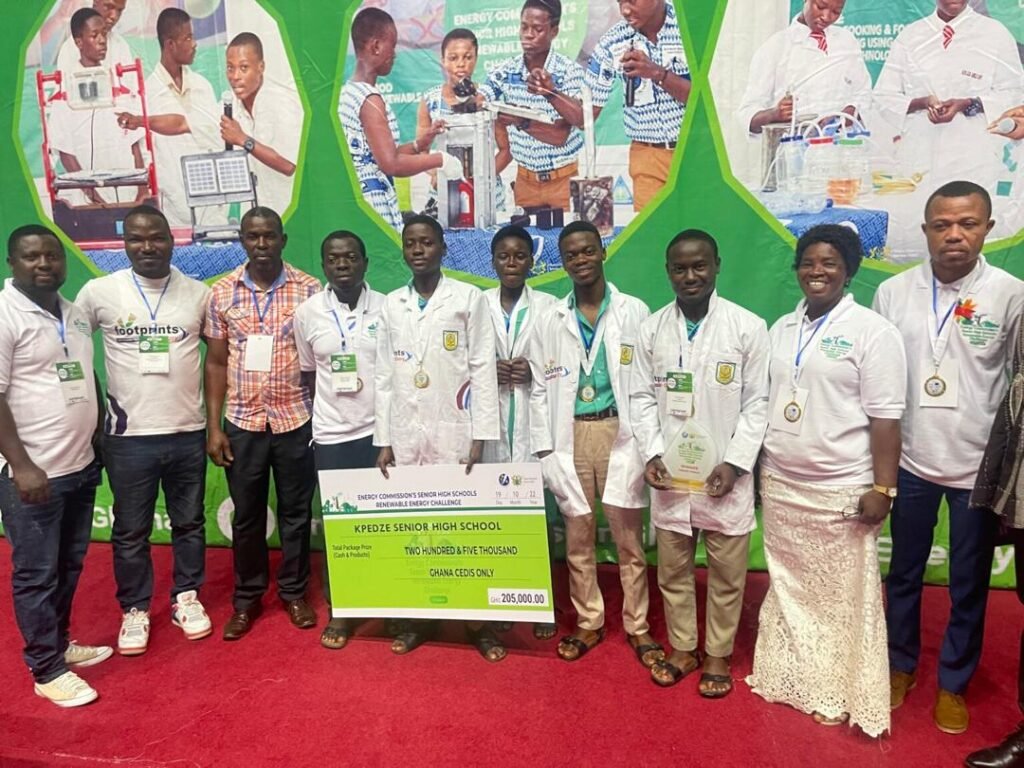
picture with winners of the Energy Commission
High School renewal energy challenge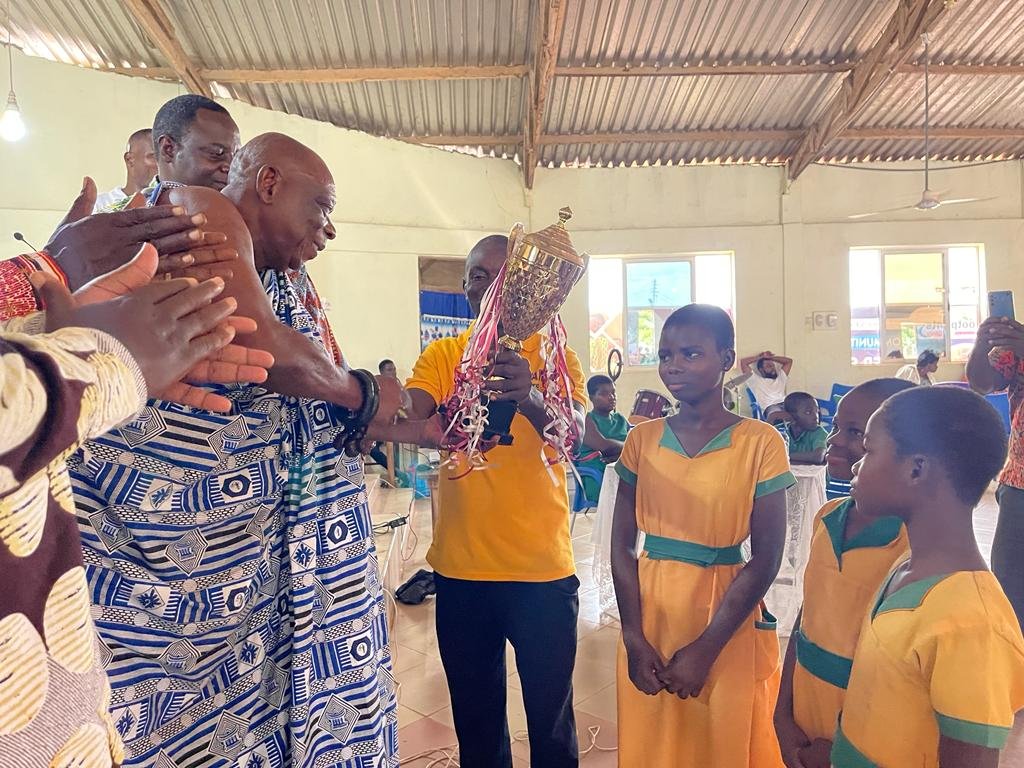
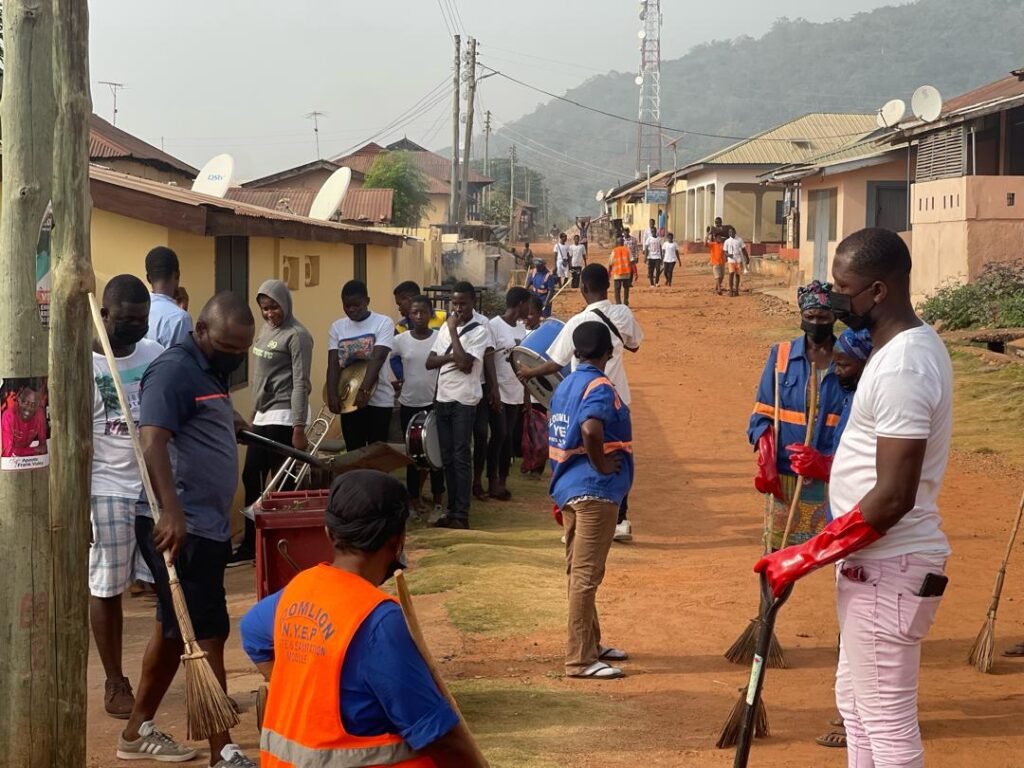
From a young age, Kafui’s life has been guided by strong values rooted in communal living.
Growing up in a close-knit family and community, he experienced firsthand the power of shared responsibility-where neighbours became second parents, and village elders doubled as life coaches.
Speaking to The Spectator in Accra on Saturday, Fiator Mordeku Ill said one childhood memory that continues to inspire him is when Togbe Gobo Dake XII, Chief of Tsito, bought him a slate for his first day in school.
Today, he serves as Fiator (father to Togbe Gobo Dake XII) to his childhood benefactor-a powerful circle of legacy and service.
“I was enstooled in my late 30s, so this journey is still quite fresh-just under two years in,” he said, by many standards that is considered quite young, especially given the weight and complexity of traditional leadership.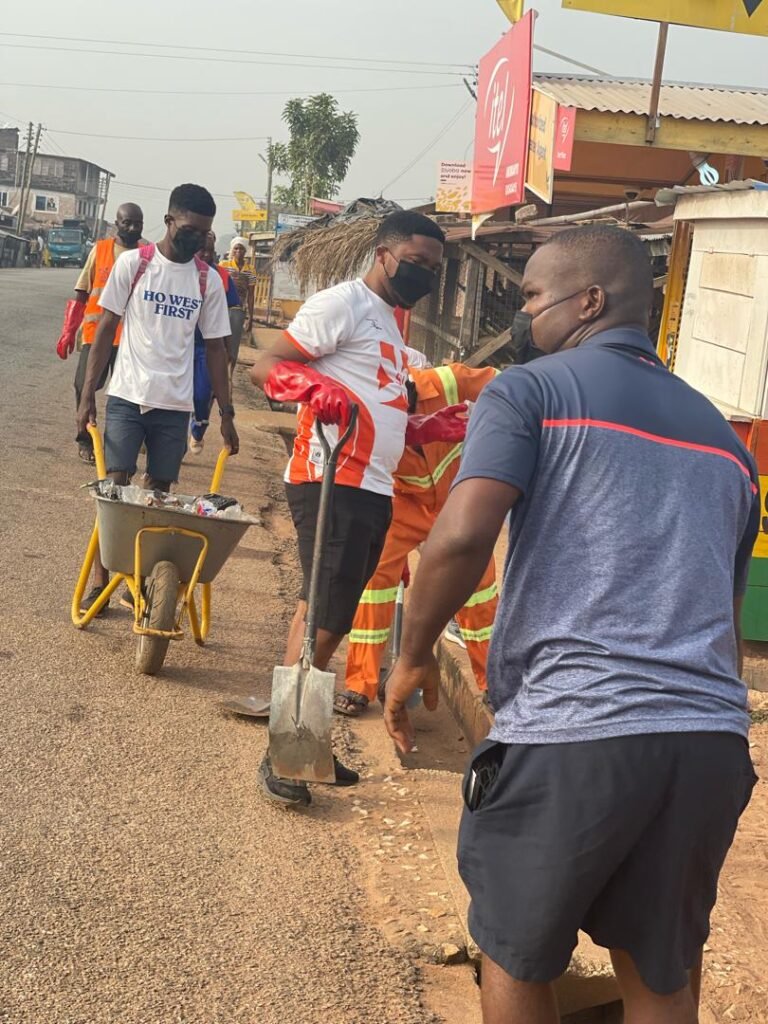
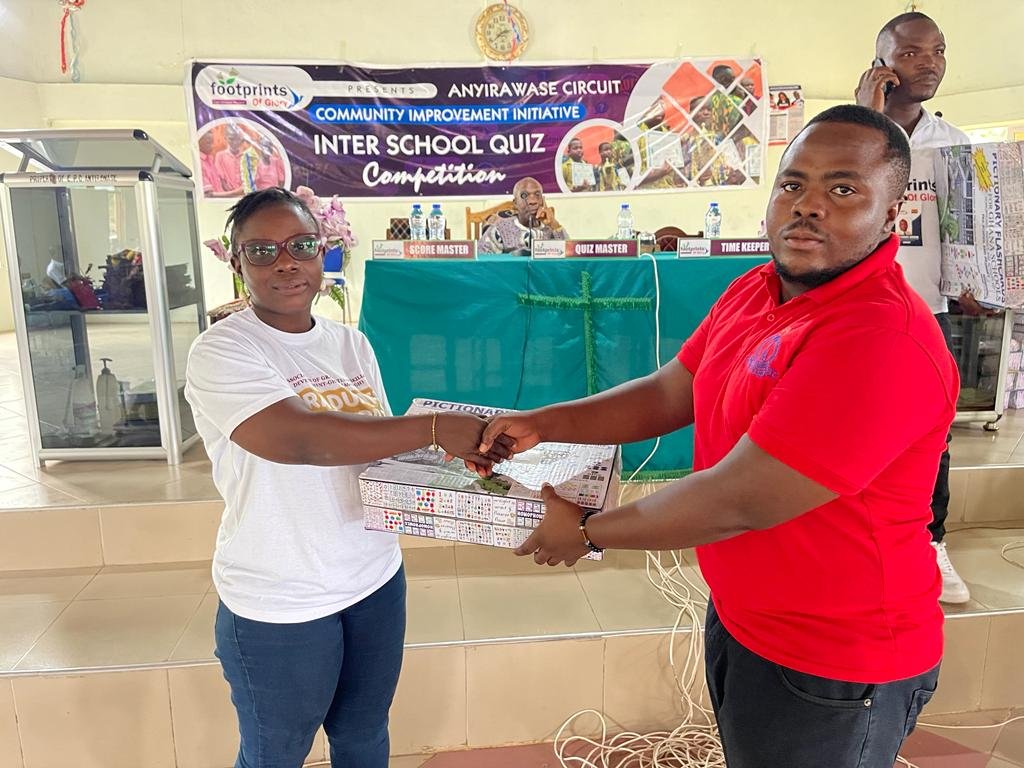

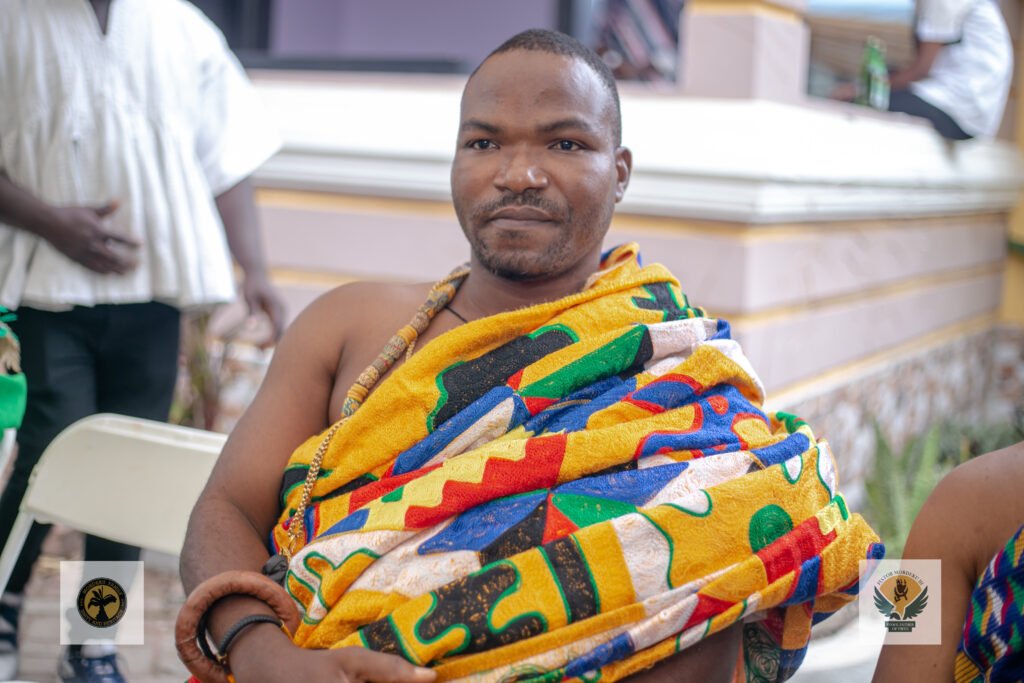
Tsito during his coronation
But I have always believed that leadership is not about how old you are; it is about preparation, mentorship, vision and most importantly, a desire to serve.
According to him, becoming a chief at a young age came with immense responsibility, saying “chieftaincy can be complex and sometimes misunderstood, but my family played a key role in preparing me.”
On the day of his enstoolment, he stood composed, not because it was easy, but because he was aware of the expectations ahead.
The reality, however, only sank in later-when the calls, community issues, and needs began pouring in. For him, leadership is not about titles but about providing proactive and adaptive leadership that reflects the needs of today’s fast-changing society.
Fiator’s reliability with the youth is a defining feature of his reign. “I am not far from the Gen Zs,” he says.
This closeness, according to him, enables him to connect with young people on a peer level, encouraging them to engage in community initiatives and understand the importance of preserving tradition. It is this connection that empowers him to blend traditional authority with modern innovation.
Outside of chieftaincy, Kafui is a passionate architect and advocate of sustainable design.
His love for designing spaces began as early as Junior Secondary School, and today, he continues to inspire with thoughtful architecture that focuses on sustainability, community needs, and the intelligent use of local materials.
To him, architecture is about how people interact with spaces, and one of his proudest contributions is his role in the design of the new Regional House of Chiefs projects across Ghana’s six new regions-a national undertaking that incorporated diverse stakeholder inputs.
His work as an architect and a chief converges in one of his most symbolic projects-a small concrete bridge he built behind his house.
It replaced a dangerous makeshift path used by locals, especially the elderly, to cross a storm drain.
“Now people walk across without fear. That one act of building a bridge, literally and symbolically, pushed me to think more deeply about the many quiet struggles people go through,” he said.
This bridge became the foundation for his greater calling – providing not just charity, but dignity and equity.
Through the Footprints of Glory Foundation, which he founded in 2020 and officially registered in 2021, Kafui has launched impactful initiatives across Tsito and the wider Awudome area.
From funding school fees and apprenticeships to constructing small community bridges and launching an online radio station (soon to become a full community station), the foundation has been a lifeline for many.
It is supported by respected individuals like Dr Yao-Foli Sekyema and Mr Michael Brefo. The foundation’s success lies in collaboration and shared purpose.
A touching example of his impact is the story of a young boy from a neighbouring village who, due to financial hardship, was working on farms despite being a top student. Fiator took him in, supported his education, and
today, the boy is university-bound-a story that encapsulates the spirit of his work.
“I don’t dwell much on legacy,” Fia
tor said. “My focus is on providing real, practical solutions that ease burdens and improve lives.”
Whether it’s mentoring architecture students, building community projects, or planning future academic pursuits.
Currently, he is studying for an MSc in Facilities Management with the aim of uplifting others through service, innovation, and collaboration.
He called on the youth to embrace discipline, humility and a deep willingness to keep learning, urging the youth not to be afraid of hard work or setbacks and that they were part of the journey.
“Find people who inspire you, ask questions, stay curious, and never forget your roots. Where you come from is your foundation, and it will keep you grounded no matter how far you go and we don’t have to wait until we are older to start serving.
He is married with three children and enjoys working out, playing lawn tennis, travelling, listening to music which he says helps him reflect, plan and recharge.
By Esinam Jemima Kuatsinu






